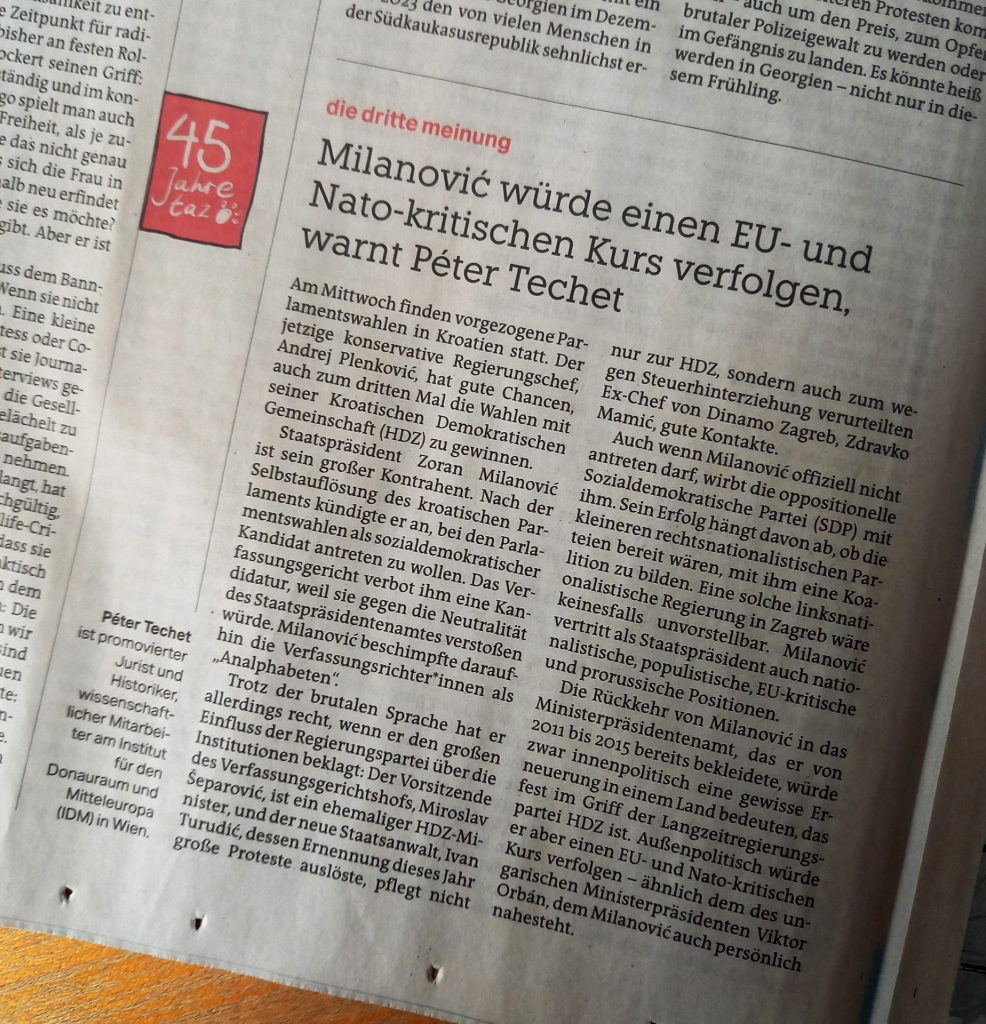
Sebastian Schäffer was invited by Asharq News to comment on recent statements by the Hungarian government reiterating that their country does not want to participate in NATO operations to transfer weapons and train Ukrainian soldiers. The IDM Director pointed out that Viktor Orban is currently facing one of the biggest anti-government protests happening in the history of the country and that the bluntness of these statements and the harsher reactions are therefore directly related to the internal situation in Hungary. Schäffer also stressed that the Hungarian government has been very reluctant when it comes to the support of Ukraine before and has used the debate about the sanctioning packages within the European Union for its own benefit:
“[…] they want to a certain extent to benefit from the suffering that is happening in Ukraine. And this is something that I really condemn, especially if we talk about a collective security organization like NATO and a collective value community like the European Union. I would like to know what Viktor Orban would think if he was the victim of an aggression and we were debating whether we should help him or not. He’s not in this position, of course […] he is in NATO, and he can ask for the support. Ukraine can’t do that. Ukraine needs to rely on solidarity. And I can tell you, two weeks ago, I went to Ukraine, and I saw how the people are suffering there, and I saw the constant air raid alarms. I’ve witnessed air raid alarms again while being in the country and we are denying them the basic capabilities […] to defend themselves. And the Hungarian government is using this as leverage for their own benefit,” Schäffer said on the Arabic-language television channel.
He admitted that Hungary is a sovereign country and that their decisions have to be respected. “But I am criticising that Hungary is part of a collective security treaty organisation, NATO; Hungary is part of a value community, the European Union: but they are themselves violating the value community in the European Union and they are denying the basic security of not a NATO member, but a NATO partner country, Ukraine. And here again I would ask, is it really a sovereign decision to deny the basic rights to defend oneself if we at the same time also try to personally profit from such a situation? And this is a point where I would doubt that we should have a single country blackmailing all others at the expense of the Ukrainian people”, the IDM Director concluded.
Watch the video (in Arabic) here.























